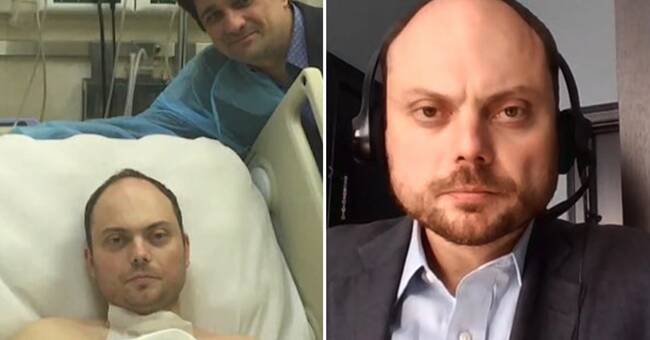He was a close associate of opposition politician Boris Nemtsov, who was shot dead five years ago.
That same year, Kara-Murza was poisoned for the first time and survived against all odds.
He is convinced that the poisoning of Navalny was an attack by the current regime.
- No one in Russia was surprised.
For many of us, it became clear as soon as we heard about Navalny's poisoning that it was a politically motivated attack on the regime's most famous, effective and dangerous political opponents.
Vladimir Kara-Murza says he himself was poisoned twice, in May 2015 and in February 2017. He was on both occasions in Moscow.
- Both times the symptoms were identical.
Thankfully I had company, if I had been alone I would have died.
"You feel how the body slowly gives up"
He describes that he suddenly started to feel very bad, could not breathe and gasped for air.
- It is a very scary feeling when you try to breathe and do not get any air.
Feelings of suffocation, vomiting, sweating ... You feel how the body slowly gives up.
Both times he ended up in a coma and had multiple organ failure.
His wife was told by doctors that he had a five percent chance of survival.
- I can not even express in words how grateful I am to be sitting here now.
Do not doubt the intervention of the regime
The official diagnosis, according to the Moscow hospital, was "toxic effect caused by unknown substance".
Vladimir Kara-Murza does not doubt for a second that the assassination attempts were directly linked to his activities within the opposition.
How he came in contact with the poison, however, he does not answer.
He thinks it is the job of the Russian Committee of Inquiry to find out, which he and his lawyer demanded, but the Committee of Inquiry has not responded.
He does not believe that the assassination attempts would succeed in silencing the opposition.
- There are so many in Russia who are derived from Putin's regime.
He has been in power for 20 years, a whole generation knows no other political reality.
This is not normal for a European country in the 21st century.

